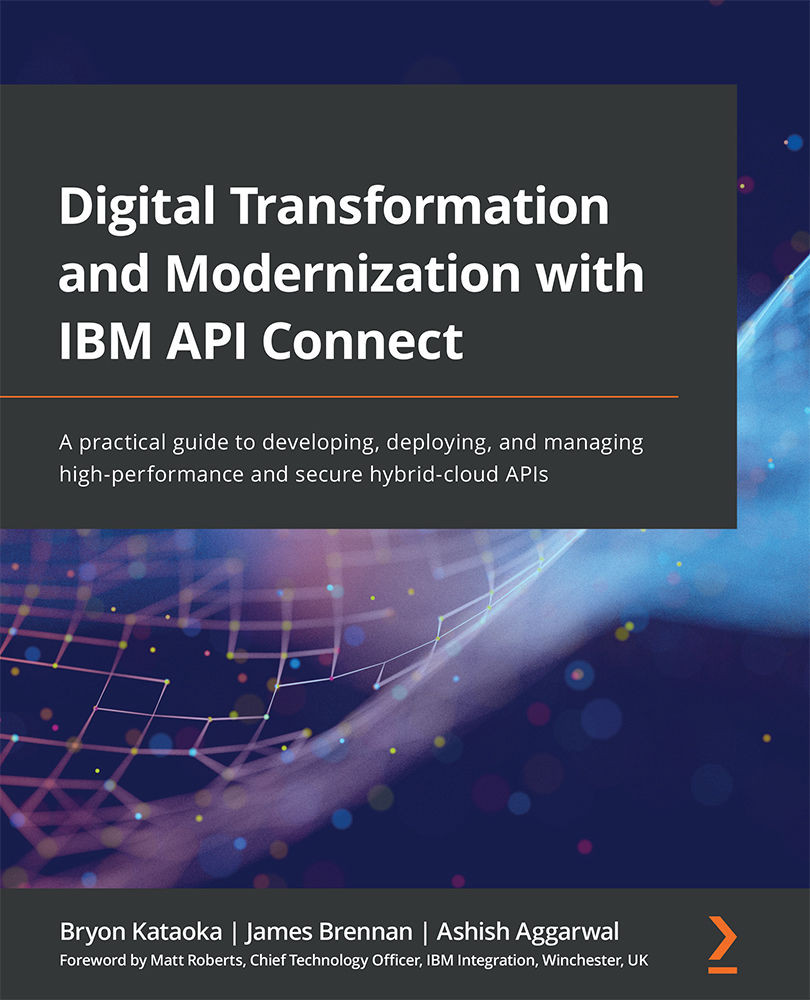Overview of this book
IBM API Connect enables organizations to drive digital innovation using its scalable and robust API management capabilities across multi-cloud and hybrid environments. With API Connect's security, flexibility, and high performance, you'll be able to meet the needs of your enterprise and clients by extending your API footprint. This book provides a complete roadmap to create, manage, govern, and publish your APIs.
You'll start by learning about API Connect components, such as API managers, developer portals, gateways, and analytics subsystems, as well as the management capabilities provided by CLI commands. You’ll then develop APIs using OpenAPI and discover how you can enhance them with logic policies. The book shows you how to modernize SOAP and FHIR REST services as secure APIs with authentication, OAuth2/OpenID, and JWT, and demonstrates how API Connect provides safeguards for GraphQL APIs as well as published APIs that are easy to discover and well documented. As you advance, the book guides you in generating unit tests that supplement DevOps pipelines using Git and Jenkins for improved agility, and concludes with best practices for implementing API governance and customizing API Connect components.
By the end of this book, you'll have learned how to transform your business by speeding up the time-to-market of your products and increase the ROI for your enterprise.



 Free Chapter
Free Chapter
